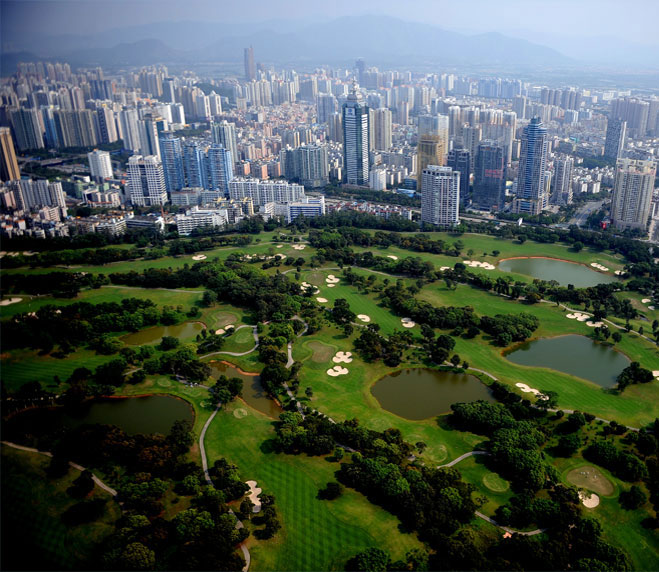30 minutes ago, I was writing a blog on the topic about how Apple’s renascence after it outsourced its production to China, as well as how Apple’s financial report in Asia section boosted after the China’s market opened to it in 2009. However, after I read the posts of my classmates wrote about Shenzhen, China, I decided to erase what I have written and started this post.
After I finished the monologue by Mr. Daisey, I do not know what to say about Shenzhen anymore. So I try to find my original impressions about that city. Shenzhen, like Mr. Daisey mentioned in the talk, was nothing but a small fishing village located at the southern end of China. I can still recall the patriotic song, The Story of Spring, praising the leader Deng Xiaoping from my childhood. “Year 1979, that was a spring. There was an old man, who drawn a circle on the map of China, near the southern sea.” Yes, that was the first time I knew about Shenzhen, around my age of 12. 34 years ago, Deng Xiaoping, the chairman of China at that moment, decided to make Shenzhen area to be the “Shenzhen Special Economic District”, which started the beginning of well-known Chinese Economic Reform. I have to admit that Shenzhen’s speed of developing and expending is unbelievable to most Americans , while a small recovery work of side-way in their local community may take forever. However, that is actually what is happening in most cities in China, including my hometown, Hangzhou.
“I do not know much about China.” said Mr. Daisey, which actually is the sentence interested me the most during the monologue. How did a person, not even a journalist, not familiar with Chinese culture ending up in Shenzhen and doing interviews and investigation. Instead of being amazed by his experience, I started to pay attentions to all the details about his trip to the city I have been to over 5 times. There came out so many random things I do not even know about in China. However, I think I know much more about China than Mr. Daisey. A factory gate security carrying a gun? Guns are highly forbidden in China, and even some policemen no longer hold a gun during duty nowadays. Most security guards work for the factory are also recruited from the countryside, just like the other factory workers. I can hardly believe that the government will actually allow such random recruited person to carry a gun. An abruptly ended ramp on the high way? I could never see that with my at least 19 years living experience in China, and I have been travelling a lot. When he tried to explain how the “secret union” works, I could not help to laugh out, and I realized that he knows nothing about China, indeed.
But how Shenzhen actually is? As the largest economy center in the south, Shenzhen has been consider to be the place where “China Dream” happens. This is the city you want to go in the south if you have nothing to lose and want to start your life from scratch. Beijing is the other option for northerners. Millions people left their fields and families at countryside and had their new beginning started in the factories. You do not need a diploma from high school to work there, but you will be paid more than you can ever earn from cultivate your fields at your hometown. Your housing and meals will be provided for free and, most importantly, you will be living in a city. Just like Mr. Daisey mentioned during the monologue, the turnover ratio of recruitment is about 10 percents overall. People are leaving their jobs. However, that that moment, different from the beginning, they are no longer the “farmer-worker” they used to be, but a “citizen” of Shenzhen. Just like all the people in the rest of the world, the factory workers in Shenzhen have their own dreams. Dreaming that they will quit the factory work one day and start their own small business; dreaming that their children will have good education in the city and have friends in the city; dreaming that after all the pain they have suffered, they will have a real modern life in the city, Shenzhen. Different from most tragic stories, amazingly, there are sufficient amount of people in Shenzhen actually made their dreams. They owned their business, have their children in the good schools and live a middle-class life in wealthy communities. That fact that everything could start from a 12-hour daily shift job in the factory attracts even more people from the countryside to join the “army”. What they believed is not that this is the world well-known “blood factory”, they consider this city to be the place where all the hard working could be paid off one day. And also, this is one of the few life-changing opportunities they could ever have in their lives. They believe they are investing today for their future.

A peak of Shenzhen
The posts and materials I have been reading and listening to have made me feel pretty bad about Shenzhen. But the conflicts between what I have saw personally and what I have heard from all the critics really make me feel like to talk about this city. The different perspectives amazed me because they make me begin to rethink all the things I have been believed before. After reading this post, I hope you may also have some change of impressions about this city. So now, what we talk about when we talk about Shenzhen?



